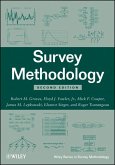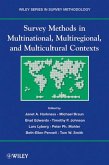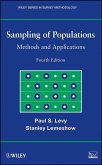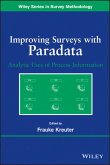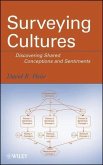Enhance the quality of survey results by recognizing and reducing measurement errors. Margins of Error: A Study of Reliability in Survey Measurement demonstrates how and hwy identifying the presence and extent of measurement errors in survey data is essential for improving the overall collection and analysis of the data. The author outlines the consequences of ignoring survey measurement errors and also discusses ways to detect and estimate the impact of these errors. This book also provides recommendations of improving the quality of survey data. Logically organized and clearly written, this book: * Deconstructs the data gathering process into six main elements of the response process: question adequacy, comprehension, accessibility, retrieval, motivation, and communication * Provides an exhaustive review of valuable reliability estimation techniques that can be applied to survey data * Identifies the types of questions and interviewer practices that are essential to the collection of reliable data * Addresses hypotheses regarding which survey questions, sources of information, and questionnaire formats produce the most reliable data In conjunction with research data gathered on nearly 500 survey measures and the application of an empirical approach grounded in classical measurement theory, this book discusses the sources of measurement error and provides the tools necessary for improving survey data collection methods. Margins of Error enables statisticians and researchers in the fields of public opinion and survey research to design studies that can detect, estimate, and reduce measurement errors that may have previously gone undetected. This book also serves as a supplemental textbook for both undergraduate and graduate survey methodology courses.
Dieser Download kann aus rechtlichen Gründen nur mit Rechnungsadresse in A, B, BG, CY, CZ, D, DK, EW, E, FIN, F, GR, HR, H, IRL, I, LT, L, LR, M, NL, PL, P, R, S, SLO, SK ausgeliefert werden.



